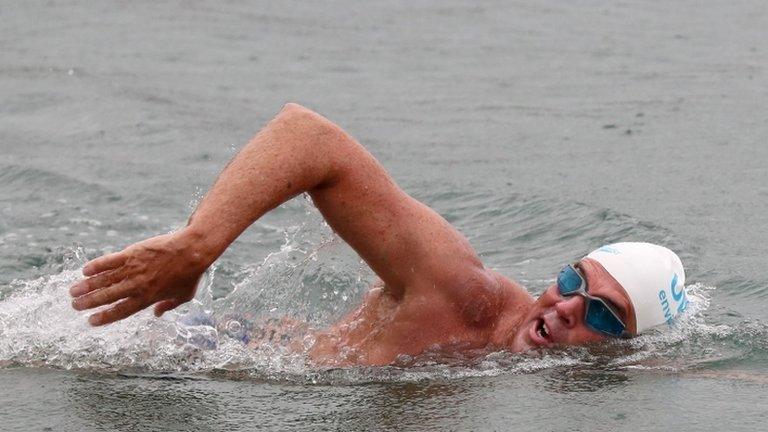Lewis Pugh swims under melting Antarctic ice sheet
- Published
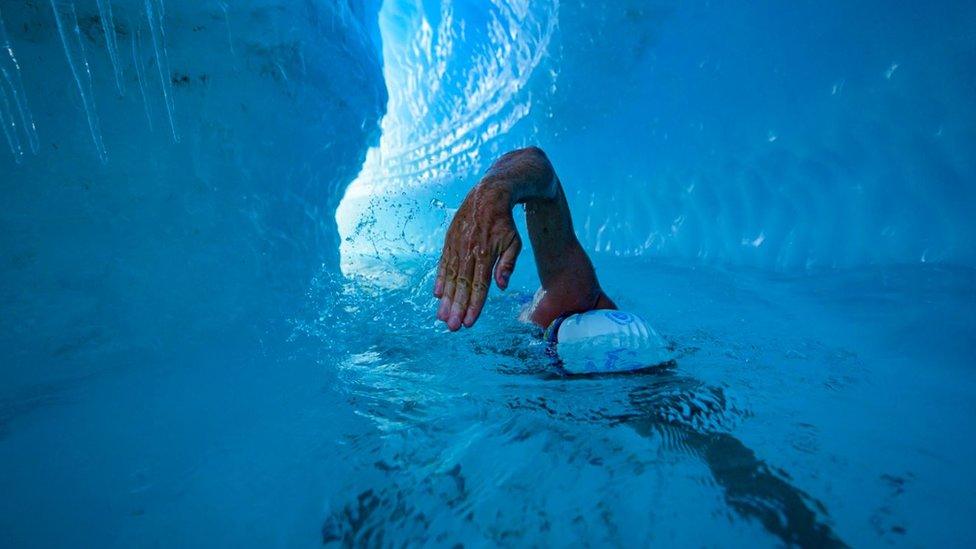
The endurance swimmer was clad in just his trunks, cap and goggles
An endurance swimmer has finished the first swim under the Antarctic ice to demonstrate the "very rapid changes" caused by climate change.
Lewis Pugh, from Plymouth, braved the freezing waters of the supra-glacial lake in nothing more than his swimming trunks, cap and goggles.
He said melt waters could be seen everywhere during his 10-minute swim in water that was just above 0°C (32°F).
It follows reports of ocean temperatures reaching an all-time high.
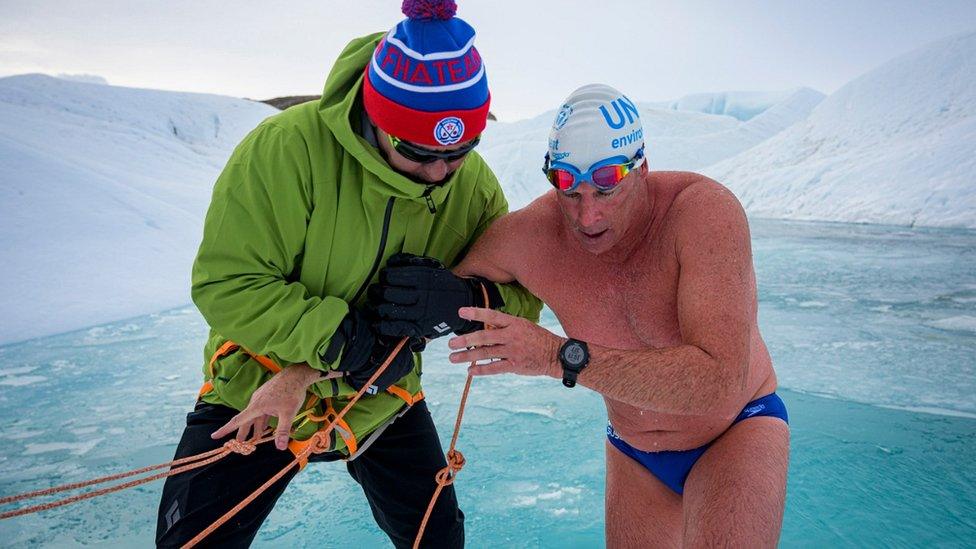
Lewis Pugh said the glacial river was the "most beautiful place I've seen"
With East Antarctica holding the record for the lowest temperatures on Earth, the endurance swimmer said the swim had been the "most frightening" of his life.
He faced the threat of the lake suddenly emptying through a crack in the ice sheet due to the "unstable" nature of the glaciers, and the risk of the water surging into the sea.
"The swim was the accumulation of 33 years of training in order to swim 10 minutes and 17 seconds down that river," said Mr Pugh
"I swam here today as we are in a climate emergency. We need immediate action from all nations to protect our planet."
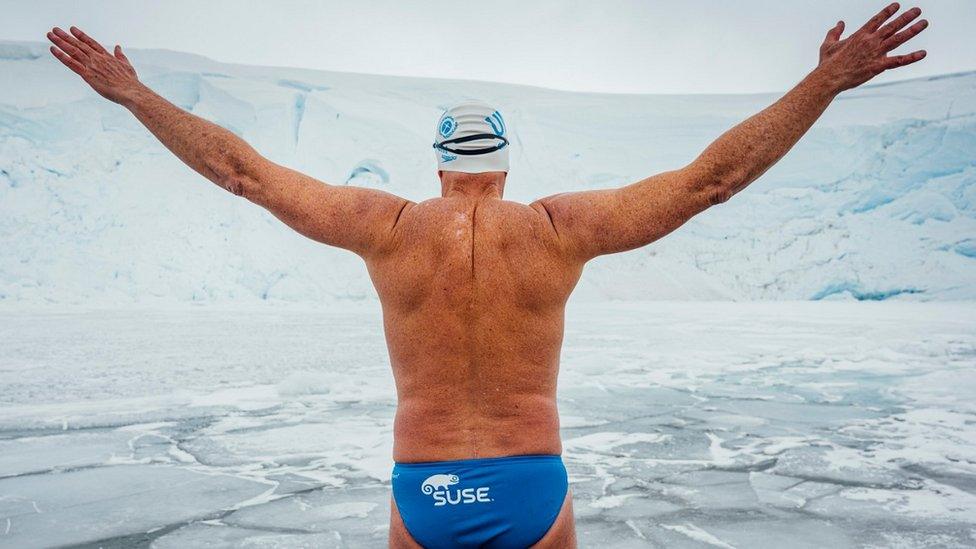
Lewis Pugh finished the swim in 10 minutes and 17 seconds
Mr Pugh described how he saw "every shade of blue" while under the ice sheets.
"It's the most beautiful place I've seen in the whole world in my whole life," he said.
A study by Durham University found there are 65,000 supra-glacial lakes in East Antarctica. They are formed by melt waters collecting on the surface of an ice sheet.
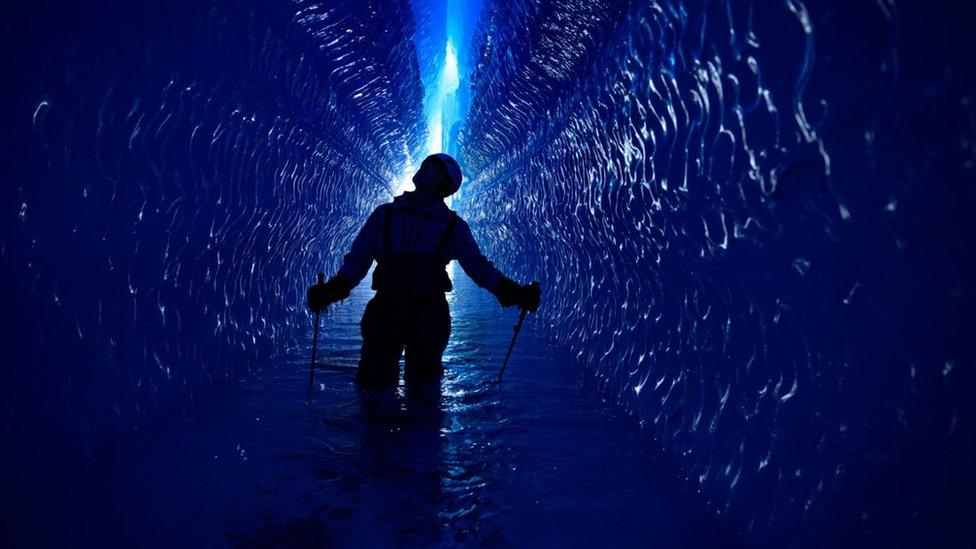
Mr Pugh said he saw "every shade of blue" under the ice sheets
Mr Pugh called for the creation of a network of Marine Protected Areas (MPA) in the Southern Ocean around the continent and for the United Nations Climate Change Conference to take "urgent action" against global warming.
The swimmer's performances have helped safeguard 2.2m square metres of ocean, including The Ross Sea which was established as an MPA following a 2015 swim.
You may also be interested in:
- Published18 December 2019
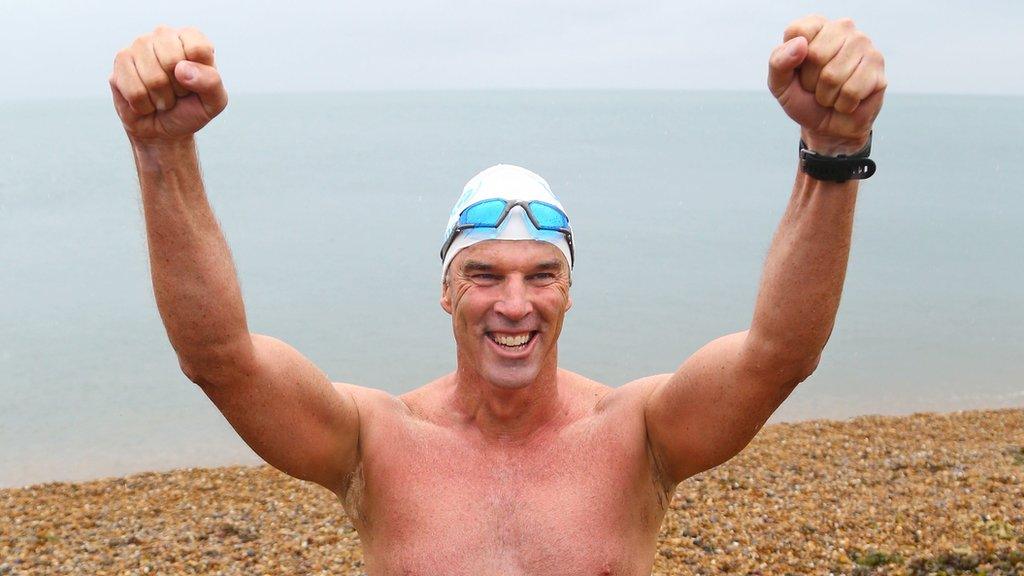
- Published29 August 2018
